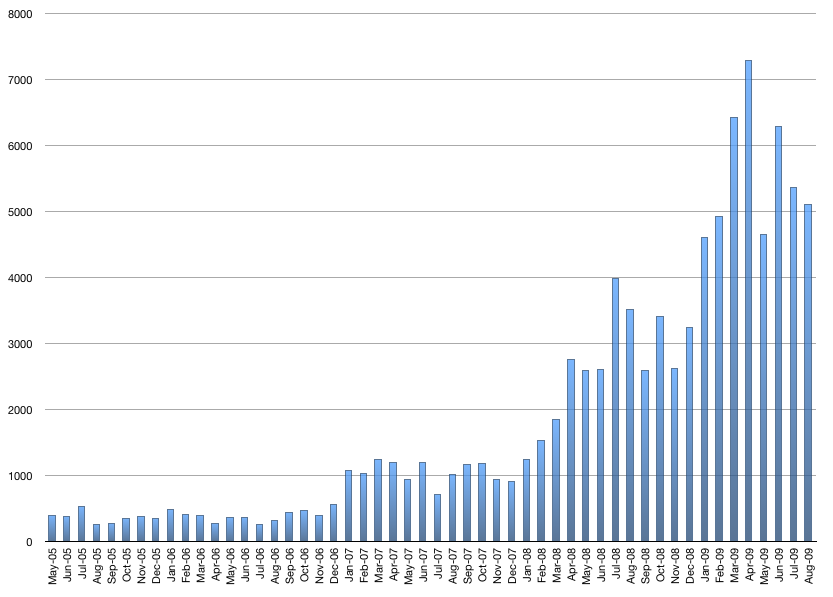In January, 2008 the National Institutes of Health (NIH) announced a revision to its Public Access Policy that went into effect April 7, 2008, and on March 11, 2009, President Obama signed a law making the revision permanent. The revision requires researchers to deposit copies of the final manuscripts of peer-reviewed journal articles, resulting from research supported in whole or in part from NIH, to the National Institutes of Health Manuscript Submission (NIHMS) system. The effect of the revision on the number of manuscripts, submitted to NIHMS for public availability in PubMed Central within 12 months of publication, is seen in the chart below.

http://www.nihms.nih.gov/stats/index.shtml
Although the revision has seen an increase from 500 manuscripts submitted each month in 2005 and 2006 to 2,500 in April 2008, and more than 3,500 per month in July – October 2008, investigators should be depositing an average of 6,500 articles per month to reflect the estimated 80,000 articles published annually that report NIH-funded research. Compliance with the revised policy is a “Term and Condition of the Award.” Investigators who fail to comply with the policy, may see special conditions placed on their awards, closer monitoring of their awards, or preclusion from obtaining future awards for a specific time period.
In summary: During the first year of implementation of the revised policy compliance continues to increase and the up to 12 month lag in appearance in PubMed Central of the submitted manuscripts continues to pass. In the coming months, the anticipated explosion of growth of articles available in PubMed Central should start to be seen. Continue to look for the links in PubMed citations to articles freely available in PubMed Central. Beginning January 2009, PubMed citations include links to articles that are freely available on the journals’ web site.
The Calder Library’s NIH Public Access Policy Overview is available at hhttps://www.library.miami.edu/calder/index.html and on the “Researchers” Portal of the Library’s web site to help researchers comply with the revised policy.